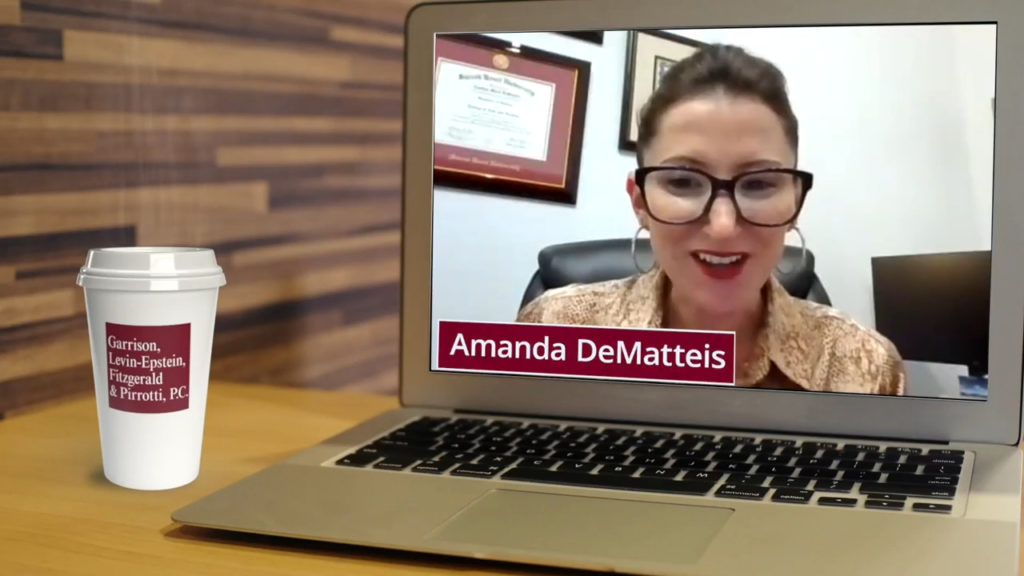Sep 22 2021
Amanda DeMatteis: Hi Josh.
Josh Goodbaum: Hi Amanda, what are we talking about today?
DeMatteis: Well, I thought we would talk about fake references. And this is actually something that you spotted scrolling through Instagram last week, a little gif or a meme, whatever it was, about folks who use fake references when applying for jobs. And it got us thinking about how terrible of an idea that is, and we thought that this would be useful information to share with Connecticut employees with a “not-to-do.”
Goodbaum: Yeah, this is a “what-not-to-do,” and frankly I understand the impulse because we mostly represent people who have left employers under less than fully amicable circumstances. And so they want to find a way to allow prospective employers to know that they’re still great, and there isn’t a problem with them and they can still have a productive career and we believe that if you had a, you know, less than fully amicable separation that doesn’t mean that you’re tarnished goods by any means. But the way to approach that is not to lie about your past and not to ask your friends or your family members to serve as fake references for you.
Why? Well, there are a few good reasons. One, it probably isn’t going to work. Most employers check references. They’re going to look and see what the phone number of the company is. They’re gonna look and talk to that person and ask them questions that will suss out what they did with you when you worked together. So having somebody pretend to be a reference for you probably isn’t going to work.
Second, if that first reason doesn’t get you there, second, it’s illegal. And not just against the law but it’s potentially criminal. It probably is criminal. The definition of fraud is lying to obtain something of value, and a job is something of value, and saying somebody was your supervisor when they’re not is a lie. So don’t excuse it with, “well, it’s a white lie, it’s innocent.” It’s criminal. You probably aren’t going to be prosecuted for it, but do you really want to engage in criminal activity like that?
And the third reason I’d say is probably the most important one or the most nuanced one from my perspective is that this kind of lie can follow you through your employment. So let’s say it works, let’s say you get the job based on a fake reference, all right? Then let’s say something comes up at work. There’s a problem, you’re going to have a dispute with your employer, you might have been terminated, you need to go talk to an employment lawyer like one of us. Well, as soon as you make a claim against your employer, they’re going to go looking for anything you’ve done wrong. There’s a legal doctrine here called after-acquired evidence, and the basic idea is if your employer hears about a claim from you and they subsequently learn after-acquired that you engaged in some sort of conduct that would have resulted in your termination, that is functionally the end of your case.
Right, and so, it’s not just that you should feel guilty about lying to your prospective employer, that your lie might follow you around psychologically, I mean it can have literal legal consequences for you. So, you know, I don’t think it’s a great way to start out your employment but more to the point, it’s not something that’s going to be particularly productive for you in our experience. So before you decide to ask a friend, or I would say, conspire with a friend to see if they will pretend to be your boss from a previous job, think twice. Think about a better way to approach the situation.
DeMatteis: Great advice, don’t believe everything you read on Instagram. Thank you, Josh.
Goodbaum: There ya go!
DeMatteis: Hope you learned something today.
Goodbaum: Anytime.
DeMatteis: See ya.
Goodbaum: Buh-bye!
Posted by Garrison, Levin-Epstein, Fitzgerald & Pirrotti, P.C. in Commentary
Tagged Amanda DeMatteis, Joshua Goodbaum









